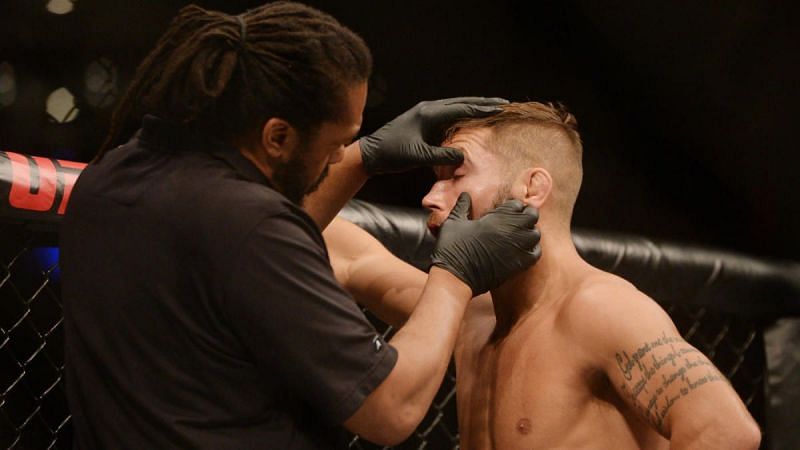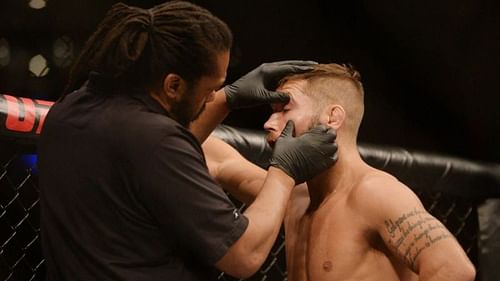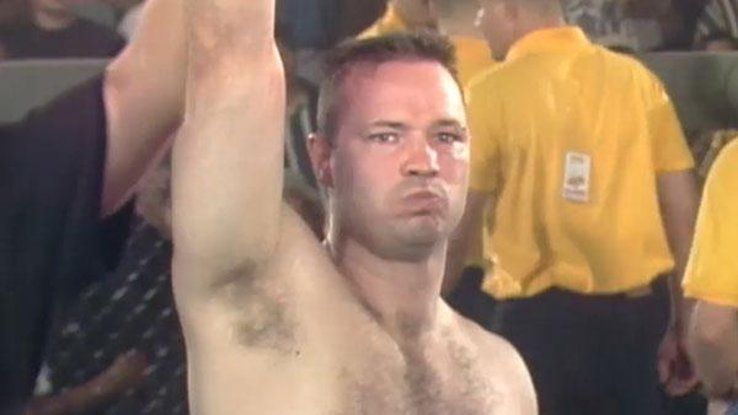
The 5 worst ever endings to UFC shows

This Saturday’s UFC Fight Night 159 saw its main event between Yair Rodriguez and Jeremy Stephen end in unfortunate circumstances, as Stephens suffered an eye injury in just 15 seconds that rendered him unable to continue. To say that the crowd in Mexico City were unhappy would be an understatement, but this is the UFC, and even in a big-time main event, you never know what you’re going to get.
We’ve seen UFC shows end in awful circumstances many times before, and it’s never good to watch; even if the undercard of the show has been fantastic, it’s very hard to overlook a main event that ends badly, like being served an amazing starter at a restaurant only to find your main course is made of sewage.
As a caveat, I’m not going to bring up shows that ended in a dull decision here; this is a ranking of the 5 worst show endings in UFC history, and to simply stuff it with a bunch of boring fights that the fans hated wouldn’t be in the spirit of the article.
Here are the 5 worst endings to UFC shows in the history of the promotion.
#5 UFC 3 – Steve Jennum vs Harold Howard

Back in its formative days in the early 1990s the UFC was a very different animal to the one we know and love today. The first handful of shows were all based around tournaments with martial artists of different disciplines facing off, and nobody had even heard of the term “MMA”.
Brazilian Jiu-Jitsu ace Royce Gracie won the first two UFC tournaments, but you could tell things were beginning to change by the time the third show rolled around, as the promoters at the time – SEG – seemed to have loaded the brackets of the tournament to ensure that Gracie met the UFC’s other burgeoning star, Ken Shamrock, in the finals.
Things seemed to be going to plan when Gracie submitted Kimo Leopoldo in an engaging brawl in the quarter-finals. Shamrock then held up his end of the bargain by defeating Christophe Leninger in the quarters and followed that by choking out Felix Lee Mitchell in the semis, but things went awry when Gracie was forced to withdraw from the semis due to injuries he’d suffered in the Kimo fight.
Harold Howard – who had made the semis after a sloppy brawl with Roland Payne – was duly given a bye into the final, where everyone expected Shamrock to beat him comfortably. But Shamrock then withdrew himself, citing a hand injury – although later reports suggested he was only interested in facing Gracie. It was a massive disappointment to the fans who’d attended the show and those watching on pay-per-view, too.
In the end, alternate Steve Jennum – a Nebraska police officer – stepped in as an “alternate” and defeated Howard in a quick, sloppy fight, becoming the most unlikely champion in UFC history. To say this was a letdown would be an understatement.
The weak ending to UFC 3 had a long-standing effect on the promotion; seeing the writing on the wall, just two shows later the UFC booked Gracie against Shamrock to decide the first ‘UFC Superfight Champion’, an early precursor to the UFC Heavyweight title, and slowly, tournaments were phased out altogether.